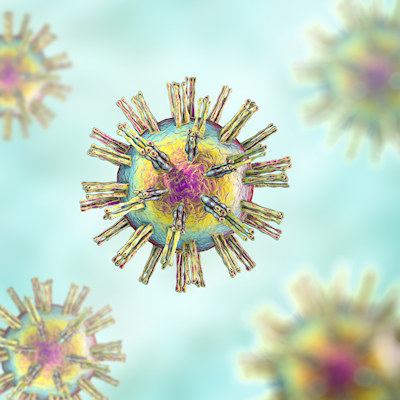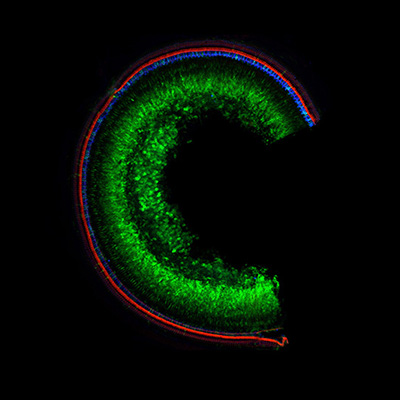September 4, 2020 -- Researchers have developed a CRISPR-based system that can simultaneously provide transcriptional control and gene editing on demand to improve the efficacy of gene therapies. The details were published in Nature Cell Biology on September 3.
Clinical gene therapies rely on viruses such as the adeno-associated virus (AAV) to deliver genes into a cell. CRISPR-based gene therapies act as molecular scissors to remove defective genes, add in missing sequences, or create a change in gene expression.
However, in response to AAVs, the host immune system can prevent the whole process by producing antibodies against the virus. This can result in rapid clearance of the virus and prevent them from delivering therapeutic payloads.
"Many clinical trials fail because of the immune response against AAV gene therapy," said Dr. Samira Kiani, co-senior author and associate professor of pathology at the University of Pittsburgh Medical Center (UPMC); member of the Pittsburgh Liver Research Center (PLRC); and McGowan Institute for Regenerative Medicine (MIRM). "And then you can't readminister the shot because people have developed immunity."
To overcome this challenge, researchers created a system that uses CRISPR in a different way. They developed a CRISPR-based transcriptional repressor system that can be used to control DNA and RNA levels through transcriptional control and gene editing on demand. The team believes that having transcriptional control over genes involved in immunity can produce therapeutic avenues to treat a broad range of acute and chronic inflammatory conditions.
The researchers explored this possibility by targeting the myeloid differentiation primary response 88 (MyD88) gene. This essential adaptor molecule is key in innate and adaptive immune signaling pathways, the response to septicemia, and the formation of adaptive immunity against viruses (including AAVs). MYD88 mutations are implicated in a number of lymphoid malignancies.
The CRISPR-controlled repression system was developed by fusing two transcriptional repressors -- heterochromatin protein 1 (HP1a) and Krüppel-associated box (KRAB) -- to the MS2 coat protein which was recruited by a guide RNA (gRNA) aptamer binding to a nuclease-competent CRISPR complex containing truncated gRNAs. Truncation of gRNA enables the application of a nuclease competent Cas9 protein for transcriptional modulation of genes.
The researchers started by examining synthetic immunomodulation of MyD88 in vivo using a CRISPR-based enhanced transcriptional repressor. Treatment with CRISPR to repress endogenous Myd88 led to a significant reduction in the level of Myd88 in blood (~84%), lung (~75%), and bone marrow (~63%) of mice. This confirmed the CRISPR-controlled system can be a potent transcriptional modality for the key immunomodulators in vivo.
Next, the team targeting the Myd88 locus with AAV1/CRISPR to evaluate if pretreatment with the CRISPR system can increase the efficacy of clinical gene therapies. Mice were pretreated with the CRISPR-controlled immune suppression system (AAV1/Myd88) and subsequently treated with two rounds of AAV9-based gene therapies 7 and 14 days apart.
The pretreated mice had decreased levels of Myd88 expression and lower immunoglobulin levels against both the pretreatment (AAV1) and gene therapy (AAV9) viruses. The researchers suggest that using this CRISPR prophylactically can increase the efficiency of subsequent viral-based gene delivery by preventing a surge in humoral response.
"We're hitting two birds with one stone," said Dr. Mo Ebrahimkhani, associate professor of pathology at UPMC, and a member of PLRC and MIRM. "You can use CRISPR to do your gene therapy, and you also can use CRISPR to control the immune response."
Beyond gene therapies, the study demonstrated that the CRISPR-based immune repression system can prevent sepsis in mice by preventing the upregulation of a wide range of inflammatory markers. The researchers offered that this system could be a powerful tool to prevent exaggerated inflammatory responses and severe tissue damage for a variety of inflammatory conditions including emerging infectious diseases such as COVID-19.
"The main goal of this study was to develop CRISPR-based tools for inflammatory conditions," said lead author Farzaneh Moghadam, a PhD student at the UPMC. "But when we looked at bone marrow samples, we saw that the group treated with our tool showed a lower immune response to AAV compared to the control group. That was very interesting, so we started exploring how this tool contributes to antibody formation against AAV and could potentially address safety and efficacy concerns with gene therapy trials."
Do you have a unique perspective on your research related to synthetic biology? Contact the editor today to learn more.
Copyright © 2020 scienceboard.net








